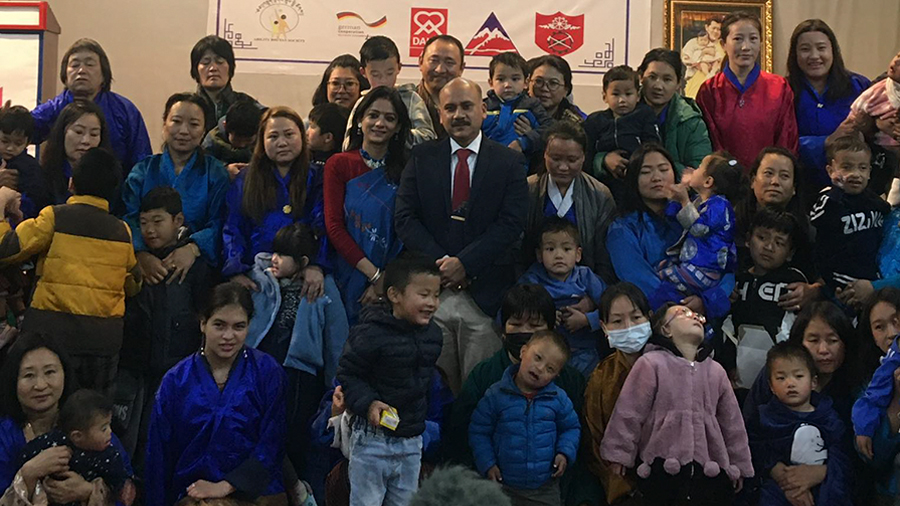
Public awareness on autism is still in its infancy stage in the country. This often leads to stigma and discrimination against people with autism and their families. To raise awareness, the Ability Bhutan Society has been observing World Autism Awareness day annually. This year as well, the Non-Government Organization in collaboration with Project DANTAK marked the day with autistic children and their families in the capital today. It is also to promote acceptance and inclusion of individuals with autism.
Almost a hundred children with autism and their families came together to celebrate the day. At the event, a few parents articulated the difficulties in bringing up their children.
Prem Kumar Neopanay, a parent and a dietician pointed out that it is demotivating for parents when early childhood care and development centres and schools refuse to admit children with autism and disabilities. Therefore, he urges policymakers and stakeholders to make the facilities inclusive.
“Places like Thimphu, the capital of the country, must have more inclusive education centres where all the early child care and normal schools have wider inclusion of children with all kinds of disabilities and especially with Autism spectrum and any other disabilities.”
Prem Kumar also shared his challenges in managing and bringing up his four-year-old son who has autism.
He shared that children with autism spectrum disorder have sleeping abnormalities or sleeping difficulties. Parents find it hard to put their children to sleep. As a result, Prem said that it becomes challenging at times to balance the parental role with work and often hinders parents from giving 100 per cent output in the work.
And the challenges do not end with sleeping abnormalities.
“They have issues and challenges in communicating as well as social interaction. They fail to communicate, they have speech delays, they have language delays. In my son’s case, we have to understand whether he has wet his napkins or if he is feeling hungry or thirsty. So, based on their nonverbal communication as a parent we fail to understand then they start showing all kinds of tantrums, agitation and anger,” said Prem Kumar.
Another parent reiterated the challenges and said parents should be strong enough to manage the process.
“I feel like it is crucial for parents to be with their children and spend time with them instead of letting them spend too much time on phones and watching television,” said Lhadon, a parent.
Namgay Dorji, the project manager of ABS shared that the day holds higher significance: to create awareness not only on autism but disabilities in general.
“We also need to understand the fact that just because children have disabilities doesn’t mean that they don’t have abilities. So, I think it is a day to recognize the unique talents and abilities that children with disabilities have. Also, it is a good platform for relevant stakeholders to come together in support of people with autism as to how we can provide services and create equal opportunities.”
He added that it is about time that society stops stigmatizing and discriminating against individuals with autism.
“I think that the time has come for us to move on and then maybe accept disability and provide meaningful support in whatever ways we can.”
According to the World Health Organization, about one in 100 children have autism. Autism is also referred to as autism spectrum disorder and it constitutes a diverse group of conditions related to the development of the brain.
While some people with autism can live independently, others have severe disabilities and require life-long care and support.
Parents are advised to seek support from the hospital or the Ability Bhutan Society if they observe lesser communication development in their children aged 12-15 months for timely interventions.
The ABS in collaboration with Project Dantak also organized a medical and dental camp for children with disabilities and their parents and caregivers.
ABS initiated observing the day annually in 2013 as per the royal command of Her Majesty The Gyaltsuen.
Devika Pradhan
Edited by Phub Gyem







